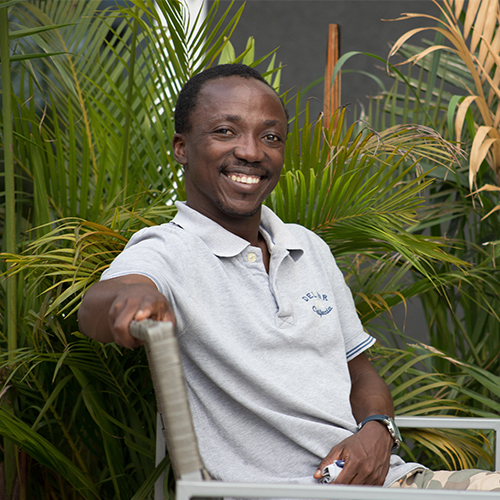
Dr. Kwabena O. Duedu
Country (Nationality)
Ghana
Grantee Title
To investigate the evolution, composition, overlap and relative importance of antibiotic resistance conferring plasmids and their bacterial host ranges in humans, animals and the environment.
Grantee Description
Project Brief
Antibiotic resistance (ABR) is a public health threat and largely attributed to heavy selective pressures resulting from widespread of antibiotic use coupled with the exchange of genetic resistance genes between microorganisms through plasmids. These plasmids can be specific to a type of host(s) limiting their spread or may be broad range with capabilities of spreading across species. Deciphering the complex interaction exits between humans, animals and the environment that supports the spread and evolution of antibiotic resistance can provide clues to stopping the spread and curing antibiotic resistance. The overall aim of the project is to investigate the evolution, composition, overlap and relative importance of antibiotic resistance conferring plasmids and their bacterial host ranges in humans, animals and the environment. The study employs portable next-generation sequencing technologies and machine learning to understand the role of plasmids in the evolution and spread of resistance. The long-term goal is to aid the development of strategies that can slow the spread of antibiotic resistance by gaining insight into the co-evolutionary processes that allow bacteria to improve the persistence of newly acquired MDR plasmids. This fundamental knowledge will support research into drug therapies based on restricting the horizontal transfer or stable replication of drug resistance or virulence plasmids in human pathogens
Bio
Kwabena is a Senior Lecturer and Head of the Department of Biomedical Sciences, University of Health and Allied Sciences, Ghana. He had his undergraduate education in Medical Laboratory Science and masters in Microbiology at the University of Ghana. He pursued a PhD training in Synthetic Biology at the University of Edinburgh, UK. He completed postdoctoral training under the African Partnership for Chronic Disease Research PostDoc Fellowship programme as well as completed the Novartis Global Health Fellowship in Cambridge, Massachusetts, United States. practiced as a Medical Laboratory Scientist for 4 years in the Ghana Health Service. He worked at the National Public Health and Reference Laboratory (NPHRL) and the Clinical Laboratory Unit (CLU), Korle-Bu. He participated in the organization of Trainer of Trainer workshops on malaria diagnosis as well as undertook supervisory monitoring of the USAID Funded Improving Malaria Diagnostics project implemented by the Medical Care Development International in Collaboration with the Ghana Health Service and Ministry of Health. His current research is focused on understanding the role of microbial communities in the spread and evolution of antibiotic resistance, disease pathogenesis and polymer degradation. Some specific areas of work currently include investigations into horizontal transfer of antibiotic resistance determinants within microbial communities in humans, animals and the environment; the causal relationship between the gut microbiome, nutrition, inflammation and obesity; dysbiosis and inflammation as a basis for sickle cell disease crisis; and the role of microbial communities in biomass and plastic degradation. Presently, he is involved in building Africa-led, Africa-focused capabilities involving the use of innovative applications of new technologies that drive innovation in multi-omics research and applications for human health and the environment.
